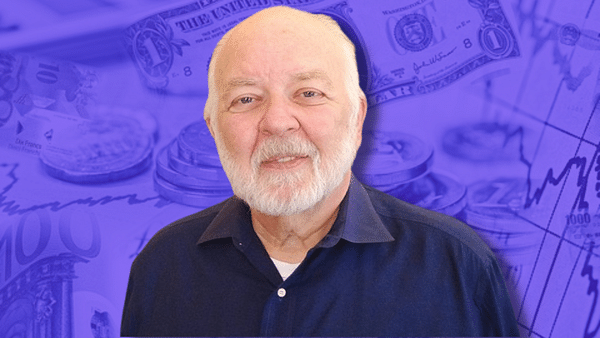This banking sector veteran says there will be no banking crisis.
We are all watching what is happening in the banking sector right now. While some analysts are thinking the worst, this banking sector veteran is optimistic about the situation and says that there will be no banking crisis or that it is already over.

Reports are flying all over the internet regarding Armageddon in the banking sector. But Dick Bove, the chief financial strategist at Odeon Capital Group, doesn't think the situation is quite as dire as is being reported everywhere. Personally, I just want to point out that I pretty much share his view of the current situation, and see things in a similar way. This situation is, in my view, also quite specific, and it is therefore necessary to take this into account. What makes this situation so specific is something we will discuss below.
The beginning of madness
https://www.youtube.com/watch?v=QACGoKb48_0
In order to understand the uniqueness of this situation, we have to go back to the beginning and recall what triggered this madness. It all started with the collapse of Silicon Valley Bank $SIVB. As you all know, this is no ordinary bank. It was a bank for start-up companies. You may be thinking that it doesn't matter what companies are clients of the bank. To a certain extent you are right, but this was an absolutely unique case.
This bank was practically designed for the start-ups that made up the majority of its clientele. The problem is that start ups burn the cash they have on deposit with the bank. In situations like this, these companies simply need more of the cash they have deposited in the bank. and there's a problem. Of course, we all know how that turned out. But what's important for us now is to look at the features that set this bank apart from the others.
- High exposure to start ups- This bank partially paid for its client portfolio, which was mostly start ups and small companies that were not yet generating cash, and used investor money deposited with the aforementioned bank to operate.
- Nonsensical management- Such companies can be expected to need to have cash on hand. Instead of somehow adapting to the nature of its clientele, the bank invested the money it raised in long-term government bonds. This is not necessarily wrong, it is just that in this case, for example, the bank may have reassessed the situation and, given the nature of its clients, may have made a different decision.
Thus, according to Bove, unlike in past crises, credit problems are not the main factor in this crisis. In his view, this is just a unique case that has caused too much of a stir
There were no bad loans, the economy is not yet in recession. The banks are healthy. It was a unique development that had no right to cause a threat to the entire industry.
After all, if you look at the labour market, it is still showing some strength and stability. Personally, it is this labour market that worries me, which acts as a strong headwind in the fight against inflation.
The psychological effect
What's the biggest problem here at the moment is the psychological effect unleashed by the $SIVB crash Everything happened terribly quickly, with two banks collapsing in one weekend. So people were under pressure, and they stopped thinking rationally. It was this effect that unleashed the huge movements of smaller, regional banks in the markets. This uncertainty, of course, compounded the effect until the first positive news hit the markets.
According to Bove, the current chaos in the markets is mainly due to this psychological effect, where, in short, there is currently a great deal of panic in the banking sector.
The current withdrawals from some regional banks are therefore currently being made in a panic and without any thought or consideration. In certain cases, this is also true of investments, with the sell-off in shares of some banks being caused largely by pressure from fears of another bankruptcy.
The end of panic
Recently, the largest US banks decided to come to the rescue, providing First Republic Bank with a $30 billion cash injection.
According to Bove, it is this move that may end the panic in the financial sector. It would not be the first time. Dick Bove sees some similarities to past events in the course of this madness. Bove likens the move to the events of 1907, when the leaders of the largest banks joined forces to quell the problems.
The 1907 panic was the biggest, when JP Morgan's intervention helped end the banking turmoil.
Dick Bove sees this move by the party as an expression of its strength and a demonstration of its readiness in helping to resolve this situation in the banking sector. In short, by taking this step, the major US banks have indicated that they are prepared to protect the entire banking sector.
According to Bove, this move by the big banks will mean the end of the banking crisis.
Personally, I would still be cautious about making such a statement. We must expect that nothing will change overnight, but it is certainly a step in the right direction. The big question now will be how much impact it will have on the psychological effect mentioned above. If this effect can be suppressed in people, the banking crisis may indeed be averted.
WARNING: I am not a financial advisor, and this material does not serve as a financial or investment recommendation. The content of this material is purely informational.
















